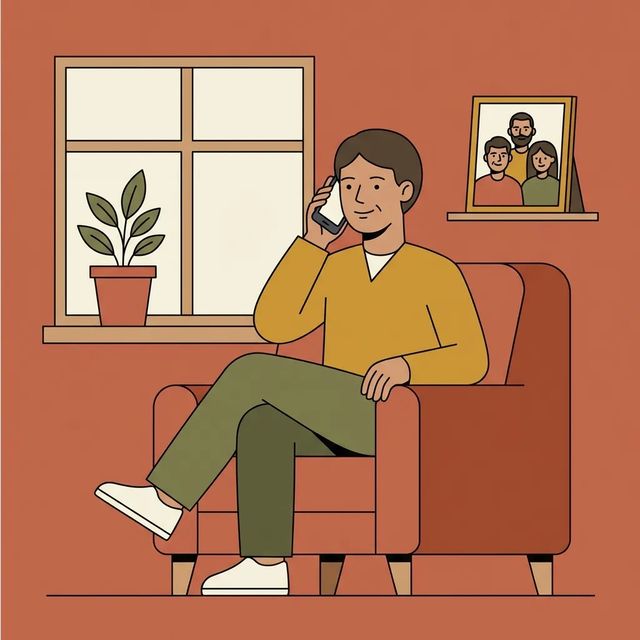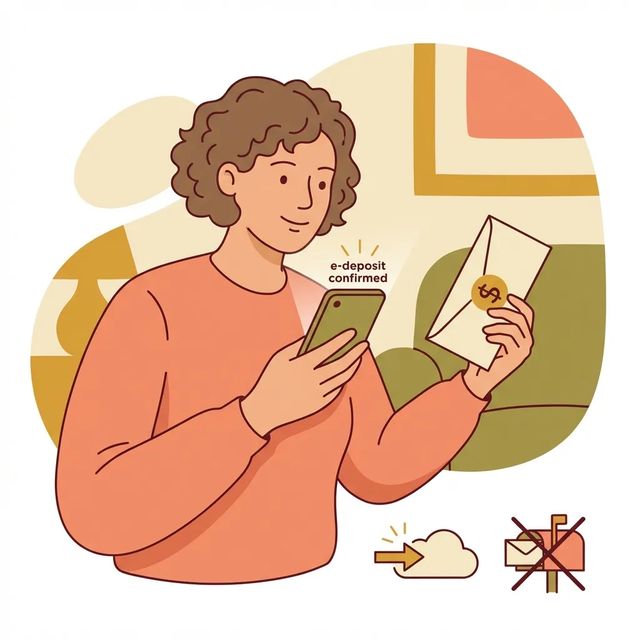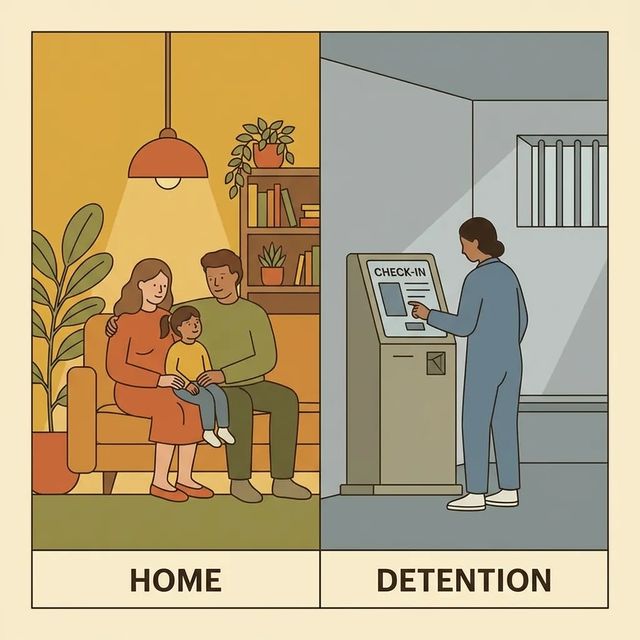Mohave County Jail
Need to reach someone at Mohave County Jail? Look up an inmate, send messages or mail, add commissary funds, or schedule a visit.
Explore
Find an Inmate at Mohave County Jail
Search for a loved one and send messages and photos in minutes.

Guides for This Facility

How to Visit Mohave County Jail (AZ)
Got questions before your visit? Call the Mohave County Detention Facility at 928-753-0759. The line is open 24 hours a day. Press 1 for visitation.
Read Guide
How to Send Money to Mohave County Jail (AZ)
Need to put money on someone's account at Mohave County Jail? Start by knowing which vendor to use. TouchPay handles inmate account deposits, while NCIC is a separate system for phones, tablets, and visitation.
Read Guide
Sending Messages and Photos to Inmates: Use Mohave County's NCIC Messaging (Faster and Cheaper)
Mohave County rolled out a new Inmate Messaging system effective November 19, 2025, giving you a digital way to send documents, photos, and message-style “mail” to someone housed at the Mohave County Adult Detention Facility.
Read GuideAt a Glance
Visitation
- On-site visits at Mohave County Jail are available Monday–Friday from 7:30 to 15:00.
- Remote video visitation is offered seven days per week during specific time windows.
- Visitors must schedule visits at least 24 hours in advance.
Communication
- Phones, tablets, and visitation at Mohave County Jail all use a single NCIC account.
- The NCIC website and a customer support number are provided for account help and setup.
- The Inmate Messaging system charges per-message fees and separate fees for pictures and document uploads.
Sending Commissary
- Mohave County Jail uses TouchPay for inmate account deposits and lists a phone option plus an on-site kiosk location.
- The GTL/TouchPay portal advertises instantaneous posting of transactions and accepts deposits 24/7.
- When depositing, you must enter the inmate’s identifier (commissary/PIN or booking number) and your payment details as prompted.
Based on official sources and community feedback.Learn how we verify
Topic Overviews
Visitation
Mohave County Jail offers two ways to visit: remote video visitation seven days a week during specific time windows, and on-site visits Monday through Friday from 7:30 to 15:00. All visits, both on-site and remote, are recorded and monitored. Plan ahead. Visits must be scheduled at least 24 hours in advance, and booking early helps confirm the detainee is actually available at the time you pick. If the jail uses a remote video vendor or platform, you'll typically need to create and verify an account before your visit. The vendor usually handles scheduling and payments. Before you travel, check the jail's ID and visitor-approval requirements so you don't get turned away.
Read full guideCommunication
Mohave County Jail runs phones, tablets, and visitation through a single NCIC account. The NCIC website and customer support line can help you get set up. To message an inmate or schedule video visits, you'll generally need to create and verify an account with the approved vendor, add funds or credits, then use the vendor's tools for messaging or scheduling. The Inmate Messaging service charges per message, with separate fees for pictures and document uploads. Pricing and available features can change, so check Mohave County's NCIC messaging pages or contact NCIC support for current rates and instructions. Most personal calls and messages can be monitored or reviewed. Verified legal calls follow different confidentiality procedures.
Read full guideSending Commissary
To add money to an inmate's account at Mohave County Jail, you have three options: deposit online through the GTL/TouchPay portal, call the TouchPay phone service, or pay at the on-site kiosk at the jail. The GTL/TouchPay portal advertises 24/7 deposits with instantaneous posting, so online or phone payments may show up right away. When making a deposit, follow the prompts carefully. Enter the inmate's identifier (commissary/PIN or booking number) along with your payment details so the funds post to the correct account. Deposited funds can go toward commissary, telephone, or other authorized purchases.
Read full guideCommon Questions
Showing 6 of 10What are the on-site visiting hours at Mohave County Jail?
On-site visits at Mohave County Jail are available Monday through Friday, 7:30 to 15:00.
VisitationDo I need to schedule a visit at Mohave County Jail in advance?
Yes. You need to schedule at least 24 hours in advance to help ensure the detainee is available.
VisitationAre visits to Mohave County Jail recorded?
Yes. Both on-site and remote visits are recorded and monitored by the facility.
VisitationDo I need an account to do a video visit with Mohave County Jail?
If the facility uses a remote video vendor, you'll typically need to create and verify an account before your visit. The vendor usually handles scheduling and payments.
VisitationHow do I set up messaging for an inmate at Mohave County Jail?
Start by creating and verifying an NCIC account through the NCIC website, then follow the vendor's verification steps. You'll need to add funds or credits to your account before you can send messages or use visit features.
CommunicationDo I need separate accounts for phone, tablet, and visits at Mohave County Jail?
No. Mohave County Jail uses a single NCIC account for phones, tablets, and visitation.
CommunicationMore Guides
Ready to Connect?
Search for your loved one to start communicating today
Did You Know?
This page covers Mohave County Jail in Arizona. Remote inmate visitation is offered seven days per week during specific time windows.
This guide is based on feedback from 69 families and official facility documentation. Learn how we verify
